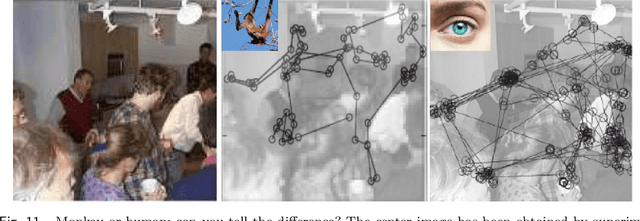A probabilistic tour of visual attention and gaze shift computational models
Paper and Code
Jul 05, 2016



In this paper a number of problems are considered which are related to the modelling of eye guidance under visual attention in a natural setting. From a crude discussion of a variety of available models spelled in probabilistic terms, it appears that current approaches in computational vision are hitherto far from achieving the goal of an active observer relying upon eye guidance to accomplish real-world tasks. We argue that this challenging goal not only requires to embody, in a principled way, the problem of eye guidance within the action/perception loop, but to face the inextricable link tying up visual attention, emotion and executive control, in so far as recent neurobiological findings are weighed up.
 Add to Chrome
Add to Chrome Add to Firefox
Add to Firefox Add to Edge
Add to Edge